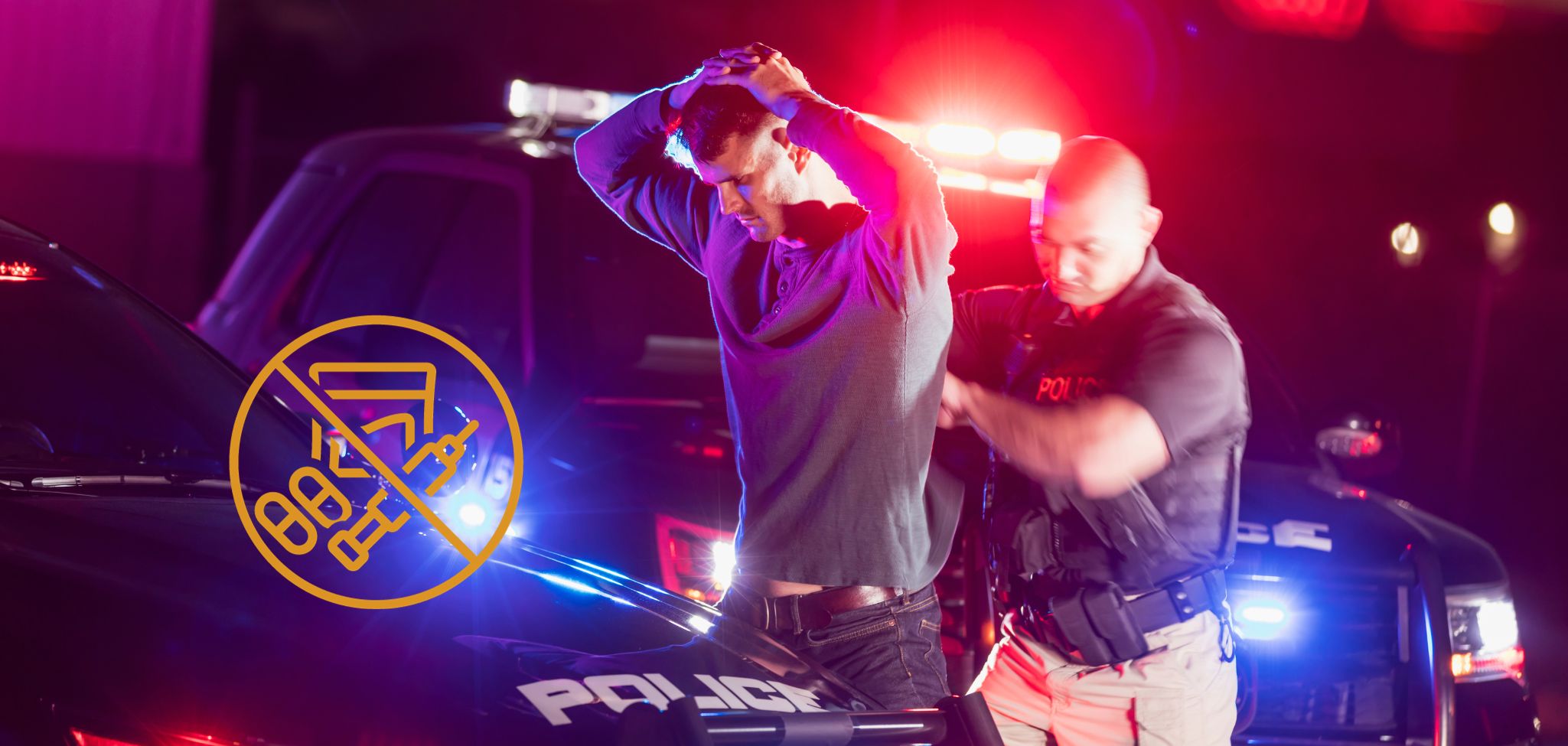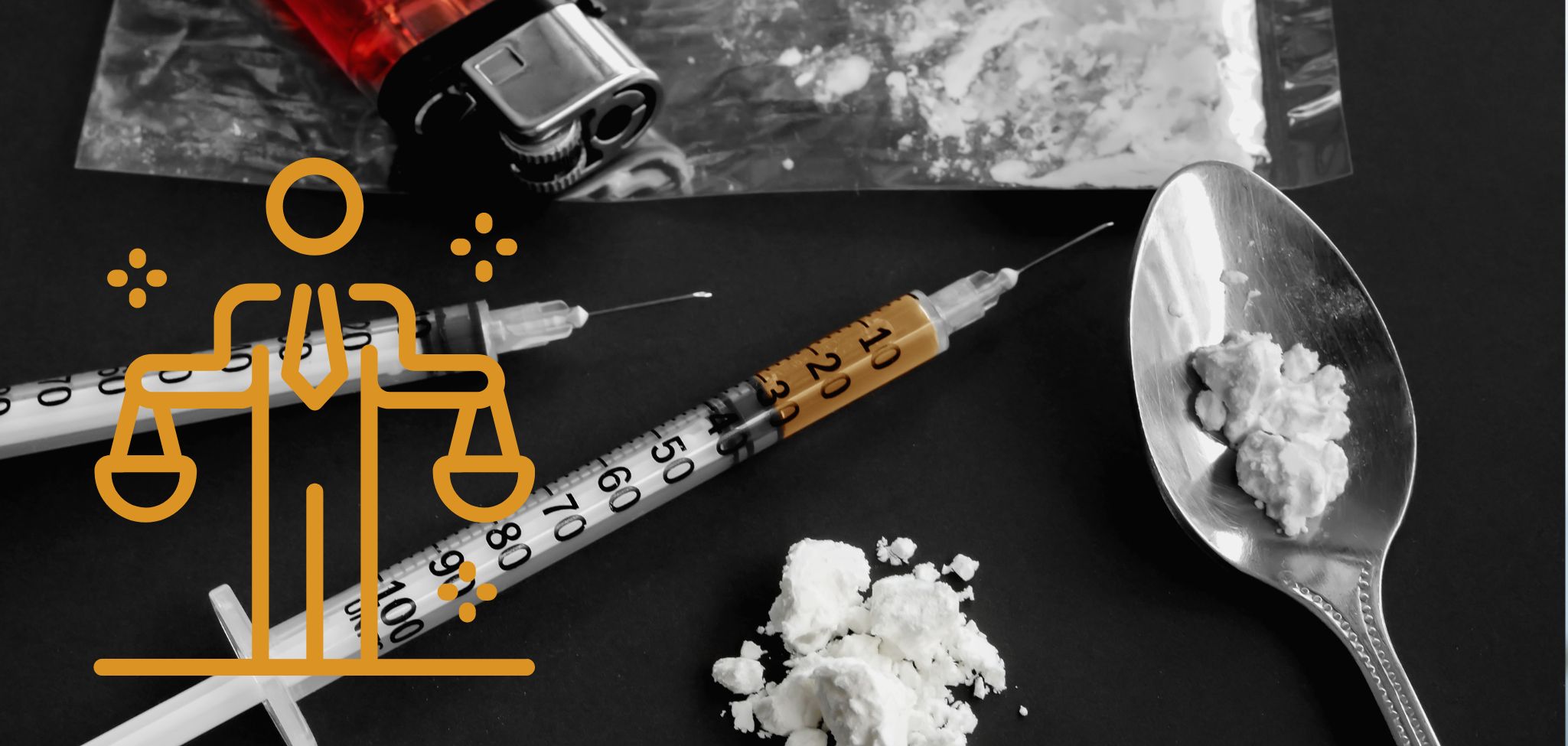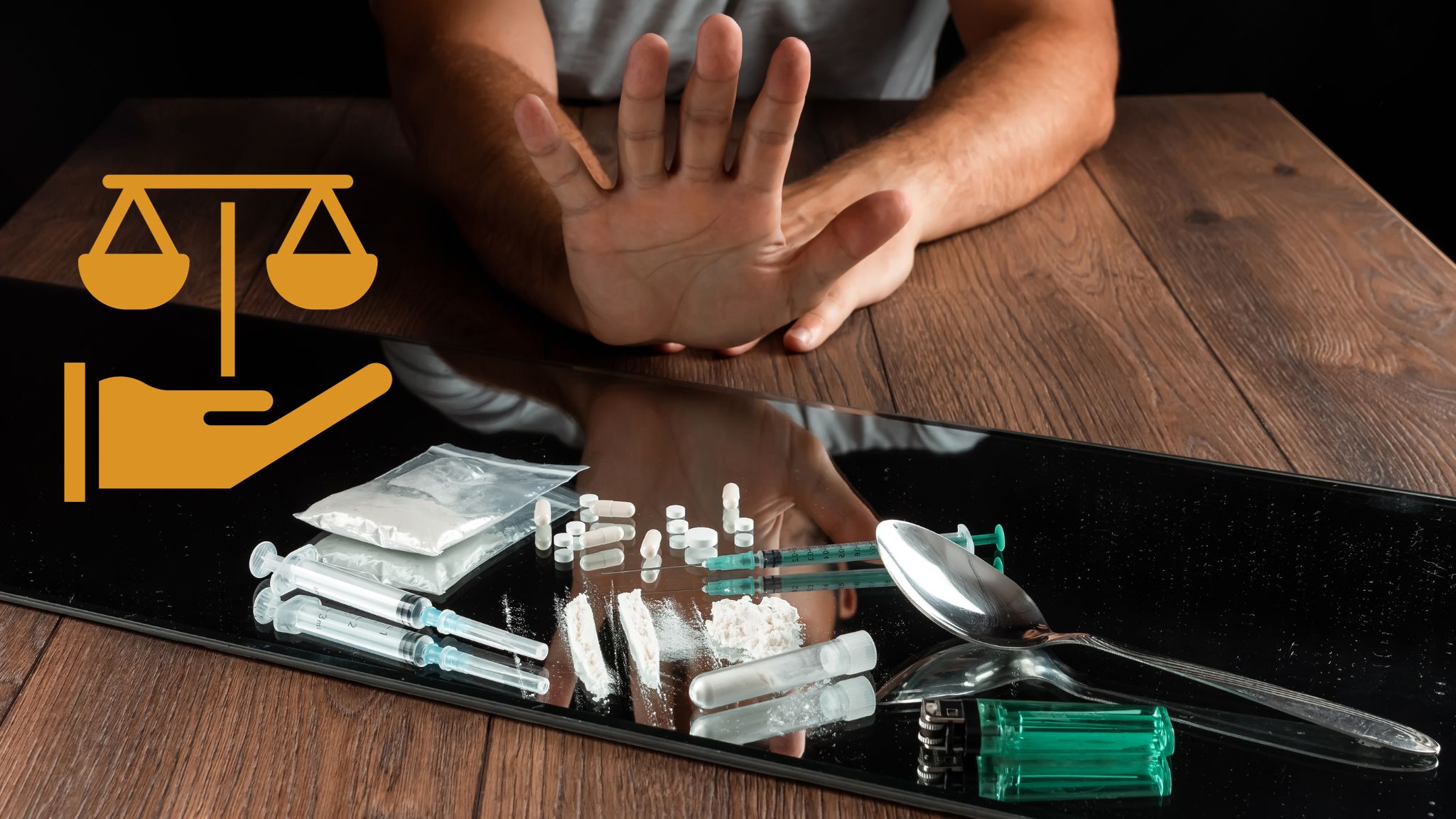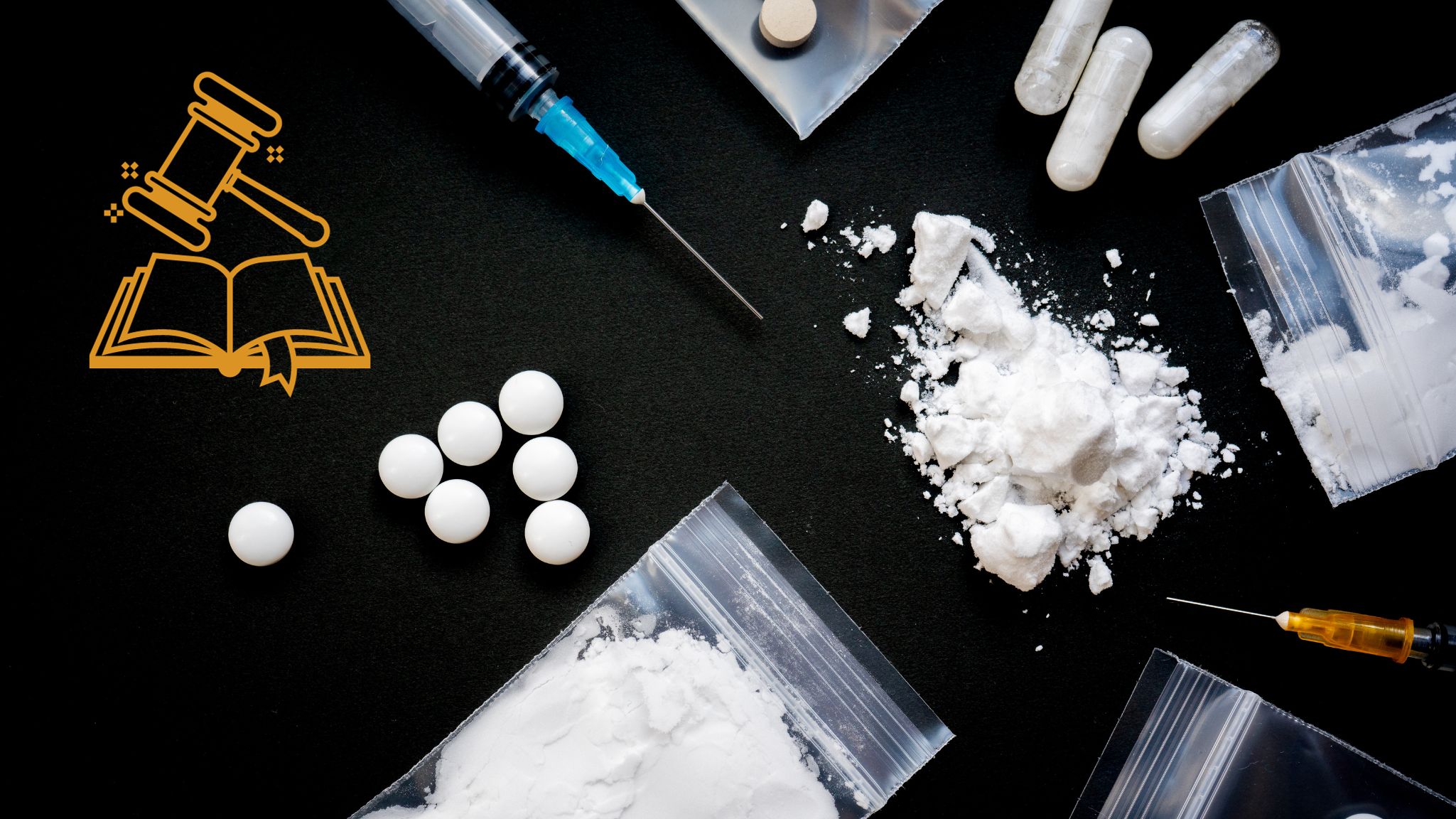Navigating the world of drug laws and charges in New South Wales, Australia can be a real challenge. As people’s attitudes towards drug laws have changed over the years, the laws have changed a lot too. Understanding what is a drug offence, what is considered a prohibited drug and what are drug possession offences can be confusing!
In this blog post, we’ll help break down the confusion around drug charges in New South Wales, making it easier to grasp. The legal landscape has transformed quite a bit, and it’s crucial to keep up, especially if you’re facing drug possession charges.
If you or one of your loved ones find yourself in a tough spot with If you find yourself in a tough spot, it’s important to know where to turn. That’s why we recommend reaching out to Jameson Law!
Your situation doesn’t have to be overwhelming; getting the right support can make all the difference. We are specialists in dealing with drug possession charges or any other drug related offence(s) you might face! Contact us today for a free consultation on how Jameson Law can assist you with any of your legal needs.
What are the legal frameworks for dealing with drug offence(s) in Australia?
The laws for drug offences within Australia change from state to state. drugs depend on which state you’re in. Each state has its own rules and punishments for different drugs. The National Drug and Alcohol Research Centre points out that the Drug Misuse and Trafficking Act 1985
is what regulates drug offences within New South Wales. However, different states and territories have different regulations depending on the prohibited drug. Keep this in mind, because the maximum penalty might change depending on where you are!
Cannabis Decriminalisation:
In South Australia, the Australian Capital Territory (ACT), and the Northern Territory, if you follow certain rules, using cannabis might result in civil penalties instead of criminal charges. But in all other states, there’s no such option, and using any illegal drugs could lead to criminal charges. Let’s look at this specifically about illegal drug possession charges for cannabis.
Depenalisation for Cannabis:
All across Australia, there are systems to reduce the punishment for cannabis use. This might involve attending programs for education, assessment, or treatment if you meet certain criteria. However, not going to these programs could still get you in trouble with criminal charges.
Depenalisation for Other Drugs:
Most states, except NSW and Queensland, have options to reduce punishment for drugs other than cannabis. These options might involve attending programs similar to those for cannabis.
It’s important to know the specific rules in your state to understand how they handle drug charges and what options might be available if you’re facing legal issues. The criminal lawyers at Jameson Law can help you with any prohibited possession charge you might have today!
Common Defences to Drug Charges
Now, we are going to break down some of the common defences that criminal lawyers might use to help you avoid the maximum penalty for serious drug offences that you might face. These defences are defences that you would use instead of pleading guilty during court proceedings.
Drugs for personal use
In New South Wales, if you have more of a drug than the allowed amount, it’s considered having it for supply, which is known as “deemed supply” under Section 29 of the Drug Misuse and Trafficking Act 1985. However, there’s a provision, Section 29(a), that can help if you had the drugs just for your use. This means you won’t be treated as supplying if you can prove it was only for personal use.
The skilled criminal lawyers at Jameson Law have been successful in using this defence to protect clients facing drug possession charges. Sometimes, they may need to bring in an expert witness to show that the amount of drugs you had wasn’t too much. This legal strategy by Jameson Law’s expert criminal lawyers highlights how proving the drugs were for personal use can be a strong defence when dealing with a drug charge in NSW to make the court see the reasonable doubt in question and help clients avoid being given the maximum penalty and a subsequent criminal record!
An inability to prove possession of illegal drugs
In New South Wales, a key part of defending against drug charges involves making sure the police can really prove that you knew about and had control over the drugs. Often, drugs are found in a car or house during a police search. For the police to succeed in their case, they not only have to show that drugs were found there but also prove that they knew they were there and that they recognized them as drugs.
If a car or house is used by many people, it can be tough for the police to prove that it was specifically you who had the drugs and not someone else. This can be a useful defence strategy, especially if it’s not clear that you, and not someone else, had control over the drugs. It shows how important it is to carefully examine the evidence to challenge the police’s case and how much physical control of such a drug can matter.
Illegal Search and Seizure:
Chain of custody defences focuses on the reliability of the evidence by scrutinizing the handling and preservation of seized drugs. Any breaks in the chain of custody can cast doubt on the integrity of the evidence, potentially leading to the exclusion of crucial exhibits. Defence attorneys may meticulously examine police procedures, storage conditions, and documentation to identify any discrepancies.
The Defence of Duress
In New South Wales, if someone is accused of a drug-related crime and claims the defence of duress, it means they’re saying they did what they did because they were under a serious and immediate threat. This threat usually involves the possibility of harm or danger to themselves or their family, like the risk of someone getting seriously hurt or even killed.
To prove this defence, the person needs to show evidence of the actual threat and explain that it was so serious that anyone in their shoes would have reacted the same way. They also have to demonstrate that they acted because the threat was ongoing and that they didn’t have a reasonable chance to stop it.
The person making the duress claim has to provide evidence to support it, and once they do, it’s up to the prosecution (the people accusing them) to prove that the person acted on their own free will and wasn’t forced.
This defence is recognized not just in New South Wales but also under Section 10 of the Criminal Code 1995 (Cth) for all Commonwealth offences, including drug-related ones and crimes committed online. This defence allows individuals facing drug charges to argue that they were forced into doing something illegal because of a serious and immediate threat to themselves or their families.
On-the-spot fines
Starting in 2019, NSW Police gained the authority to issue immediate fines of $400 for possessing a ‘small quantity’ of drugs. These fines are specifically applicable to festival attendees. Although a record of the fine will be maintained, paying it won’t result in a criminal record for drug possession.
It’s important to note that on-the-spot fines are exclusively given to individuals found with a ‘small quantity’ of a prohibited drug. The specific weight or amount considered as a ‘small quantity’ is detailed in Schedule 1 of the Drug Misuse and Trafficking Act 1985 and varies based on the type of drug involved.
Cannabis Cautioning Scheme
You don’t get on-the-spot fines for having cannabis leaf because there’s already something called the ‘cannabis cautioning scheme.’ This system lets the police decide to give a caution to adults who have up to 15 grams of cannabis.
So, instead of giving immediate fines, the cautioning scheme is there to deal with cases where people have a small amount of cannabis. It gives the police some flexibility in handling these situations without needing on-the-spot fines. It means that you won’t receive a criminal record for this kind of drug possession, and will not have to plead guilty to drug trafficking!
Case Study
In a nutshell...
Speak to a lawyer today
Navigating drug-related offences involves understanding the legal implications, potential penalties, and the intricacies of the legal system. Seeking legal advice from experienced drug lawyers is essential to building a robust legal defence. Contact Jameson Law today for a consultation and a willingness to tackle all your legal problems today. Remember, we are in it to win it!
What can experienced drug lawyers do for you?
Imagine you’re pulled over for a routine traffic stop in New South Wales, and during a search of your vehicle, the police discover a quantity of a controlled substance. This discovery leads to you being charged with drug possession, an offence that could potentially have serious consequences.
In such a scenario, you will need a lawyer in New South Wales who can play a crucial role in helping you navigate the legal process. Here’s how:
Legal Advice and Assessment: A drug lawyer will assess the details of your case, including the circumstances of the arrest, the type and quantity of the substance found, and any potential issues with the search or arrest procedures. They’ll provide you with legal advice tailored to your situation, explaining the charges against you and the potential consequences.
Defences and Mitigation: A skilled drug lawyer will identify any possible defences available to challenge the charges. This could include questioning the legality of the search, challenging the evidence presented, or exploring diversion programs that focus on rehabilitation rather than punishment. Additionally, they may work to mitigate the potential penalties by presenting compelling arguments in your favour.
Legal Procedures and Court Representation: Navigating the legal system can be complex, and a drug lawyer will guide you through the necessary legal procedures. They will represent you in court, presenting a strong defence on your behalf. This includes negotiating with prosecutors for potential reductions in charges or penalties.
Understanding the Legal System: A drug lawyer brings a deep understanding of New South Wales’ legal system and its nuances. They can interpret complex legal statutes and precedents, ensuring that your case is handled by the law.
Protecting Your Rights: Your lawyer will ensure that your rights are protected throughout the legal process. This includes making sure that evidence was obtained legally, advising you on what to say or not say to law enforcement, and ensuring fair treatment throughout the legal proceedings.
Remember, being charged with a drug offence can be a stressful and challenging experience, but having a knowledgeable and experienced drug lawyer in New South Wales can make a significant difference in the outcome of your case
FAQs
While it is possible to go to prison for serious drug related charges or drug possession charges, the likelihood of that occurring is quite low. Contact an expert criminal lawyer at Jameson Law today for your best chance of fighting any case that comes your way!
In Australia, dealing drugs comes with serious consequences depending on the amount involved. If someone is caught trafficking a large quantity of controlled drugs, they could face life imprisonment under section 302.2 of the Criminal Code. For dealing with a marketable quantity, the maximum penalty is 25 years imprisonment. However, these change depending on the quantity of drug being trafficked. Contact Jameson Law today for a free consultation on any of your legal needs!
An offender can be referred to the Drug Court if they:
Plead Guilty
Have a serious drug problem
Agree to the program
have been charged with an offence which is ‘highly likely’ to lead to a jail sentence.
The Drug Court in New South Wales helps people who have problems with drugs and do some wrong things but not violent ones. It's a special court that aims to break the cycle of drug addiction and bad behaviour. If you got in trouble for drugs and it wasn't a violent thing, you can choose to join this court. They use a helpful approach, like counselling and treatment, to help you deal with drug issues. You'll be closely watched, and they'll check how you're doing in court regularly. If you do well, you might get rewards, but if not, there are consequences to help you stay on track. If you finish the program successfully, your punishment might be less or even go away. The court believes in community support and always tries to get better at helping people.
Without proper legal representation, individuals may face unfair treatment, difficulties navigating the legal system, and challenges in resolving legal issues. Adequate funding for aid is essential to ensure equal access to justice and protect the rights of all Australians.

 (02) 8806 0866
(02) 8806 0866





